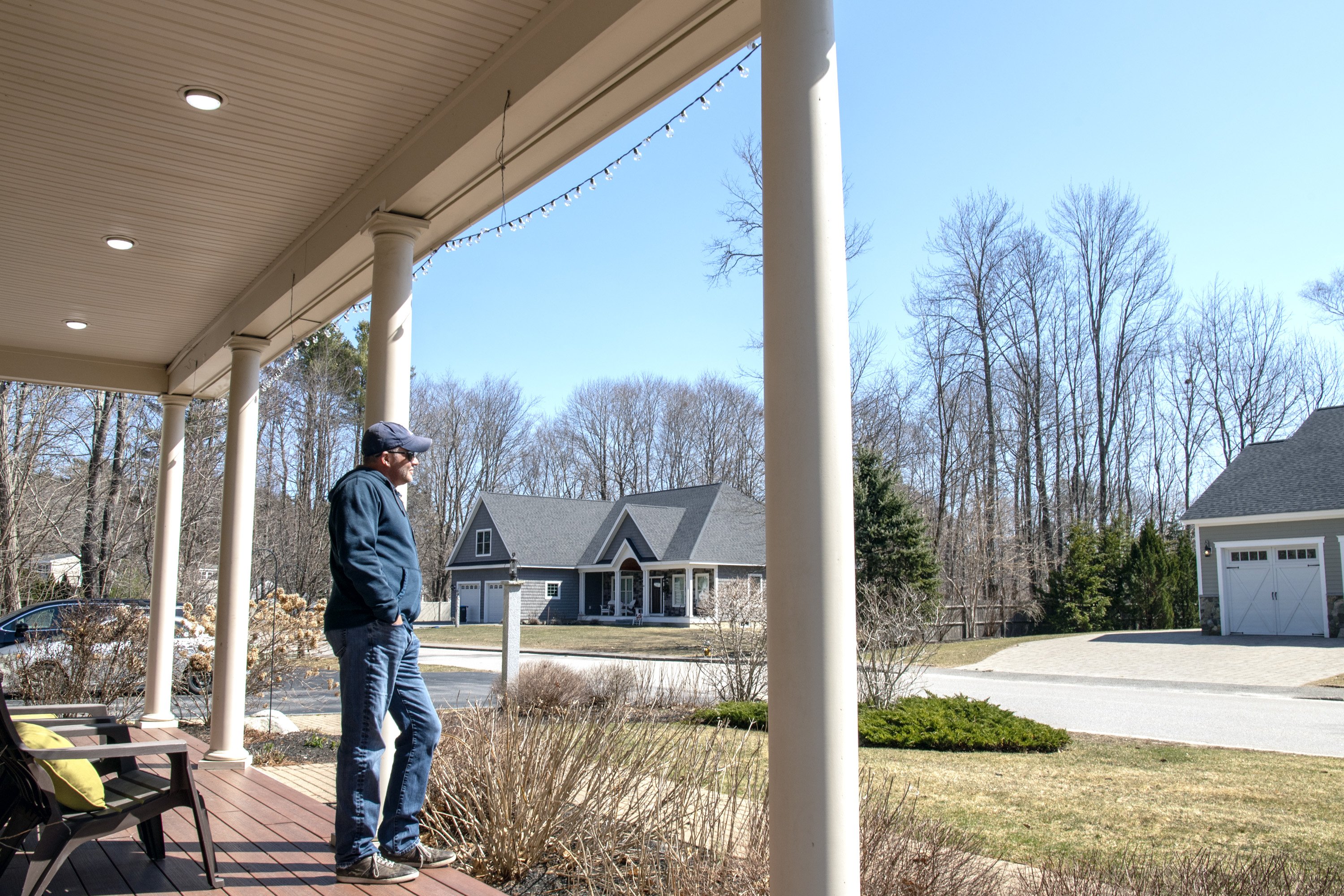A lot of wealth has been destroyed in the past few days. The plunge in share prices in the US has extended across Europe and East Asia, as markets react to the damage to world trade from Donald Trump’s tariffs. But what will this slide into some sort of trade war mean in practical terms to people here in the UK? What will it mean for jobs, for pensions, for house prices and so on? There is so much uncertainty that it is hard to bolt down even the most direct implications, but we know enough about the ways in which the world economy responds to shocks at least to know the questions.
The first is whether this will lead to a recession, here and elsewhere. Anything which damages trade damages growth. That happened after the banking crash of 2008-09, and after the pandemic struck in 2020.

So there will be a slowdown of the US economy, and that will affect us here and in Europe. if(window.adverts) { window.
adverts.addToArray({"pos": "inread-hb-ros-inews"}); }Whether this will push us into a recession, defined by two successive quarters of negative growth, is not certain. But since our growth has been pretty anaemic since autumn last year it is quite possible.
Is the UK heading towards a recession?That will inevitably mean some job losses. The UK will probably be less affected than most other countries because a tariff war would affect trade in goods rather than services. The UK is a huge exporter of services, which account for 56 per cent of the total.
However if other countries head into recession, it would be naïve not to expect us to be hit. The next question is what about financial wealth – does the plunge on the stock market matter? The best answer to that is say yes, but note that share prices have always recovered in the past and that in any case most owners of financial assets don’t need to sell. And shares also bring in dividends.
We know a lot about wealth in the UK. The Office for National Statistics does a periodic tally of it, and the most recent one came out in January and goes up to 2022. It shows that roughly half of the wealth of people in Britain and Northern Ireland is in financial assets, including private pension pots, and the other half is in property, their homes.
if(window.adverts) { window.adverts.
addToArray({"pos": "mpu_mobile_l1"}); }if(window.adverts) { window.adverts.
addToArray({"pos": "mpu_tablet_l1"}); }No one can know how far share prices will fall, but the FTSE100 index of large UK companies is about seven per cent down so far this year and 3 per cent down on where it was in April 2024. US equity markets are down further, but bond prices both here and in the US are broadly where they were a year ago.What about house prices? Well, they are up overall on a year ago, slightly beating inflation.
The Nationwide Building Society calculated they were up on average 3.9 per cent in March, with slower growth in London (a rise of 1.9 per cent) and faster elsewhere, notably in Northern Ireland, up 13.
5 per cent. But that was before the Budget increases in stamp duty came in.How house prices will be affectedLooking ahead, there will be several conflicting forces.
One will be what happens to employment – and unemployment. The Office for Budget Responsibility’s latest forecast expects a small rise in unemployment, but nothing disastrous. That’s on the assumption of growth of 1 per cent this year, so if there is a recession then unemployment would climb more swiftly.
Some people might have to sell their homes, depressing prices.On the other hand, if there is indeed a recession there will be great pressure on the Bank of England to cut interest rates. The markets expect it will do so two or three times this year, but a lot will depend on what happens to inflation.
Here, in theory at least, tariffs will increase inflation, but we really don’t know how significant that impact will be. After all, the oil price at $60 a barrel on the Brent measure is the lowest it has been since February 2021. That helps hold down inflation more generally.
The end resultIt is a very arbitrary calculation, but the negative impact of rising unemployment and the positive one of lower interest rates would more-or-less even out. So a dull market for the next couple of years, and maybe some decline in house prices for a bit – but not a crash. Since wages are climbing quite swiftly at the moment, up nearly 6 per cent year-on-year, that will mean homes will become more affordable.
If that sounds over-optimistic, consider this. The population of the UK is rising, and we don’t have enough homes already. We are starting to build more, for housing stocks are rising, but given the huge backlog it will be many years before we have more homes than the market wants.
A global trade war won’t change that basic maths of supply and demand. if(window.adverts) { window.
adverts.addToArray({"pos": "mpu_mobile_l2"}); }if(window.adverts) { window.
adverts.addToArray({"pos": "mpu_tablet_l2"}); }This is not to welcome what is happening – or may happen. Like any trading economy the UK will be damaged.
But the plain fact is that while some financial wealth has been destroyed, it is likely to recover. And housing wealth has not, so far at least, been affected – and a serious crash is unlikely.Need to knowIn times like this, you have to keep asking: what could go really wrong? My own working assumption is that there will be some sort of settlement between the UK, Europe and other US allies.
There will be two or three months of negotiations but an agreement is so overwhelmingly in the self-interest of the US, let alone the rest of us, that there will be a deal. What happens afterwards to the negotiations with China is another matter.Actually, the thing that is worrying me most right now is not tariffs but longer term bond yields.
They are heading up. The 10-year US treasury yield tipped over 4.5 per cent in trading on Wednesday, and our 10-year gilt yield went above 4.
8 per cent. The first is saying that international investors are become more cautious about holding US assets. The second is that investors don’t trust our government too.
One shouldn’t get too worried about any one day’s movement on the markets, but until gilt yields come down soon, there will be serious disruption in UK finances. It is not just a question of Rachel Reeves missing her targets, troubling though that would be. It would mean that the cost of borrowing for everyone, including on mortgages, would be running at the highest level since the financial crash of 2008.
There is also a danger of knock-on impact on companies, hedge funds, and the banking sector. The world is not as fragile as in 2008, but it is a real concern. It’s that pithy comment of Warren Buffet: “Only when the tide goes out do you discover who’s been swimming naked.
”I’m not worried about a bear market in the US. They come along about every three-and-a-half years, and on average last only about nine months. There is a good crib on that here.
But soaring long-term bond yields should be a real worry for all. Actually, the overall debt position of the UK is not too bad, so no doom loop there. But the US depends on the rest of the world to finance its current account deficit and its fiscal one.
In theory, tariffs will help tackle the first. But they may undermine – actually probably will undermine – the willingness of international investors to hold dollar assets. A run on the dollar? I don’t think so, but as I noted above we should keep on asking whether we might be wrong.
.
Politics

Trump won’t crash the housing market – but prices falls are still likely

The population of the UK is rising, and we don’t have enough homes already














